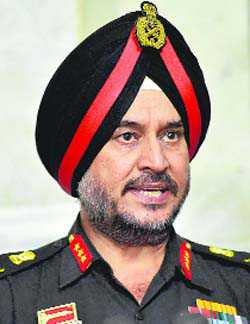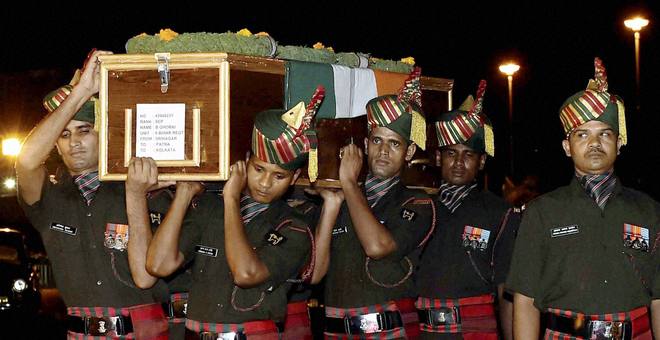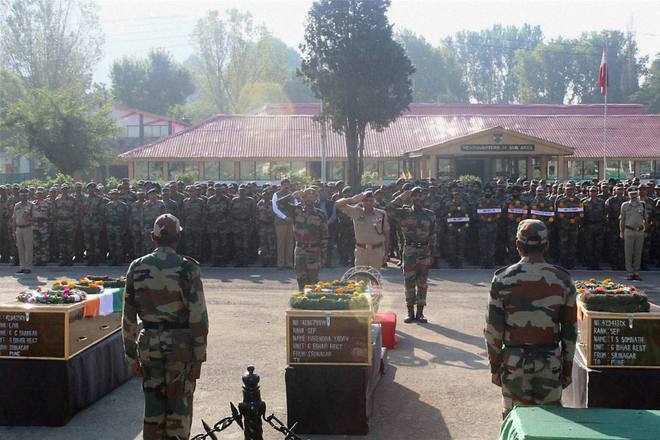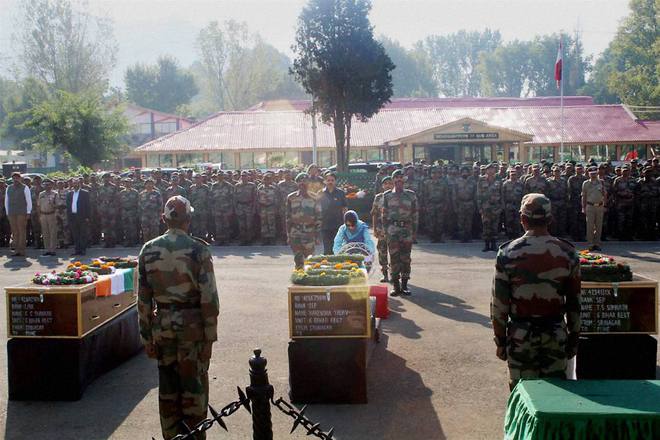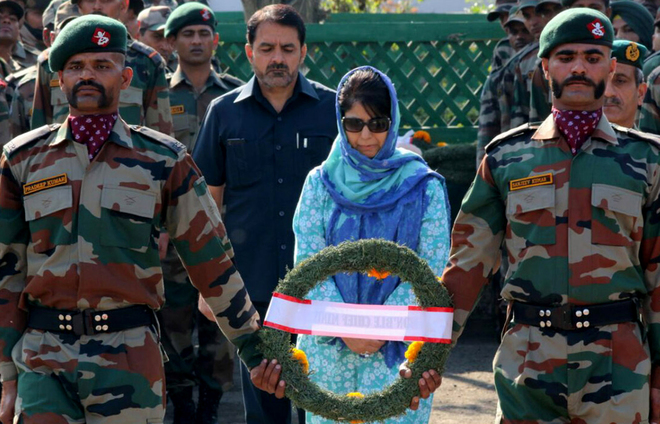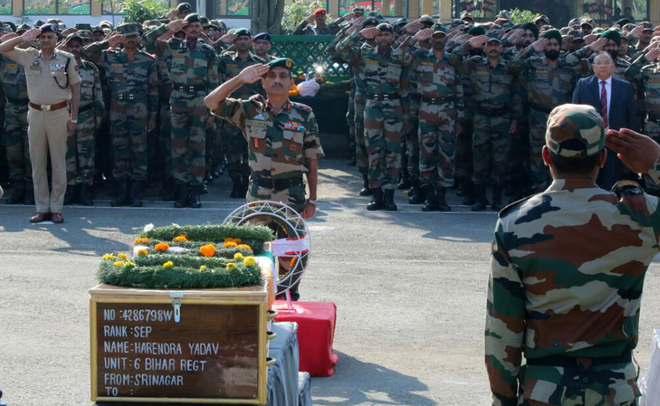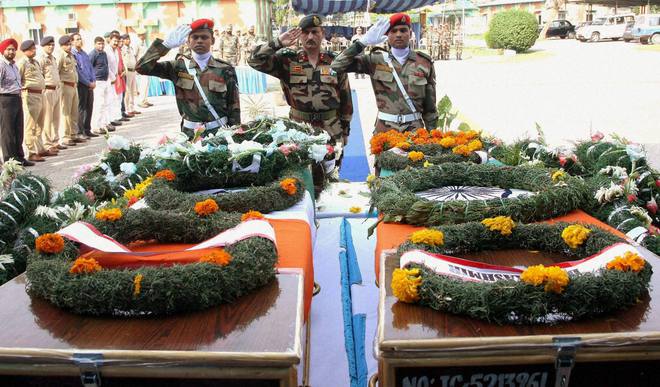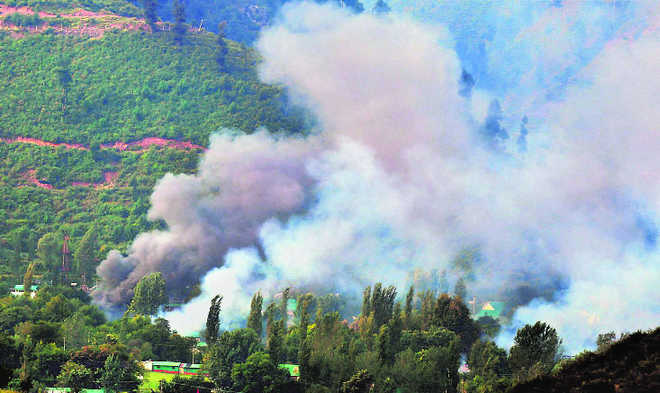A SYSTEMATIC DILUTION OF THE INDUS WATERS TREATY TO THE ADVANTAGE OF INDIA’S STRATEGIC AND ECONOMIC SECURITY WILL BE A GOOD BEGINNING TO REMIND PAKISTAN THAT AGGRESSION ALONE IS NOT THE ONLY OPTION INDIA HAS
The dastardly attack in Uri has once again challenged India’s security and brought into focus the proxy war in Jammu and Kashmir. It has driven Indo-Pakistan relations to an alltime low. National interest being supreme and the connect between India’s foreign affairs and its fundamental security and development priorities, India’s resolve to punish Pakistan for involving itself in the proxy war is an inevitable imperative. One of the measures being considered is to revisit the Indus Waters Treaty under which Pakistan has been receiving about 80% of the water from the Indus basin system for 56 years. This thought process is based on the fact that “mutual trust and cooperation” is important for such a treaty to work.
Water plays an important role in today’s global affairs. Pakistan is a water-stressed country with each citizen getting about one-sixth of the share of water as compared to the situation at the time of Independence. The Indus provides water to over 80% of Pakistan’s 54 million acres of irrigated land. Farming generates 21% of the country’s gross domestic product (GDP) and any depletion in the discharge will derail the agrarian economy of Pakistan.
That Kashmir and the water disputes are interwoven is an inescapable truth. Jammu and Kashmir, even though an upper riparian state, is the worst-affected state due to restrictions imposed by this treaty. Pakistan, apart from fomenting discontent and violence in Kashmir, has adopted an obstructionist tactics strategy since 1977 by raising issues regarding run-of-the-river projects under construction on the Western rivers by India at Salal, Baglihar, Kishanganga, Wullar Barrage, Uri, Nimo-bazgo, Chutak Hydroelectric Project, and the Dumkhar Hydroelectric Dam.
UNTAPPED POTENTIAL
Pakistan’s fears are twofold: One, that stored water can be used to inundate its land and property, and, two, that these projects will reduce the water flow in critical times, especially during the sowing seasons. Such an attitude has not only stressed the treaty itself but has also had a negative impact on the economic progress of Jammu and Kashmir. Abiding by the terms of the treaty, the state exploits just one-eighth of the power potential (about 20,000 MW) and through run-of-the river hydropower projects produces only 2,500 MW. Similarly, India maintains the limitations placed on the extent of area to be irrigated with the waters of the western rivers. Hence, as per a conventional estimate, these restrictions have imposed a loss in terms of development of industry, power and agriculture equal to some `40,000 crore annually.
Further, contrary to the decision of neutral expert Dr Raymond Lafitte in the Baglihar case that gated spillways were consistent with the treaty’s provisions to help flush out silt, the International Court of Arbitration imposed restriction (in the case of design of Kishanganga Hydroelectric Project) against drawdown flushing. This is likely to impact all future run-of-theriver hydel projects, thereby having a serious bearing on the commercial viability of such projects. To counter such a hostile environment, India should, in a gradual manner, start diluting provisions and restrictions imposed by the treaty on the western rivers.
WATER DOWN TREATY
As a short-term measure, India should,
i) bring additional area under irrigation as per provisions of the treaty;
ii) prevent flow of unaccounted and unutilised 2-3 MAF of the eastern rivers to Pakistan;
iii) construct cost-effective multi-arched check dams on tributaries as limited storage is permitted as per the treaty, which will assist in reviving borewells/springs in the vicinity;
iv) put completion of hydro-power projects under construction on fast track;
v) construct flood spill/diversion channels and reservoirs in areas prone to flooding;
vi) increase the degree of forestation in the catchment/upper course areas of the Jhelum and Chenab rivers that will not only assist in breaking the momentum of water but allow the utilisation of the discharge as well; and vii) consider disregarding the ruling of the International Court of Arbitration with regard to the drawdown flushing from future designs.
For the long term too, options exist such as, i) there is a need to construct large storage dams on the Jhelum and Chenab at strategic locations for power generation and control of additional discharge. The confluence of the Veshav, Lidder and Rambiyaar into the Jhelum within a few kilometres of each other in south Kashmir is a good example of where a dam can be constructed to good effect. Similarly, Wular Lake near Sopore also presents a natural waterstorage option. Its capacity to hold a large quantity of water could be enhanced, as envisaged by the Wular navigation project. Water available in the raised reservoirs in times of drought can fulfil water requirements of the people. This will assist in charging aquifers to improve the ground water level. In addition, the water storage facilities will safeguard against any inundation threat in north Kashmir; ii) Provision also should be made to transfer water from the western rivers to the eastern rivers. Inter-linking of rivers is technically viable. iii) We should simultaneously encourage Afghanistan to reduce flow in the Kabul river by constructing dams.
Our purpose should be to follow the United Nations International Water Convention (UNIWC, 1997) which permits a nation total sovereignty over the water flowing through it. The expenditure incurred on infrastructural development, in the long-run shall prove to be a viable investment and can be easily recovered in future, as water is an economic resource. This will also give a fillip to the economy of J&K. Thus, a systematic dilution of the Indus Water Treaty to the advantage of India’s strategic and economic security will be a good beginning to remind Pakistan that blatant aggression alone is not always the only option that India has.

- LT GEN PRAMOD GROVER (RETD)
- groverp999@gmail.com The writer is an expert on the Indus Water Treaty. Views expressed are personal

















